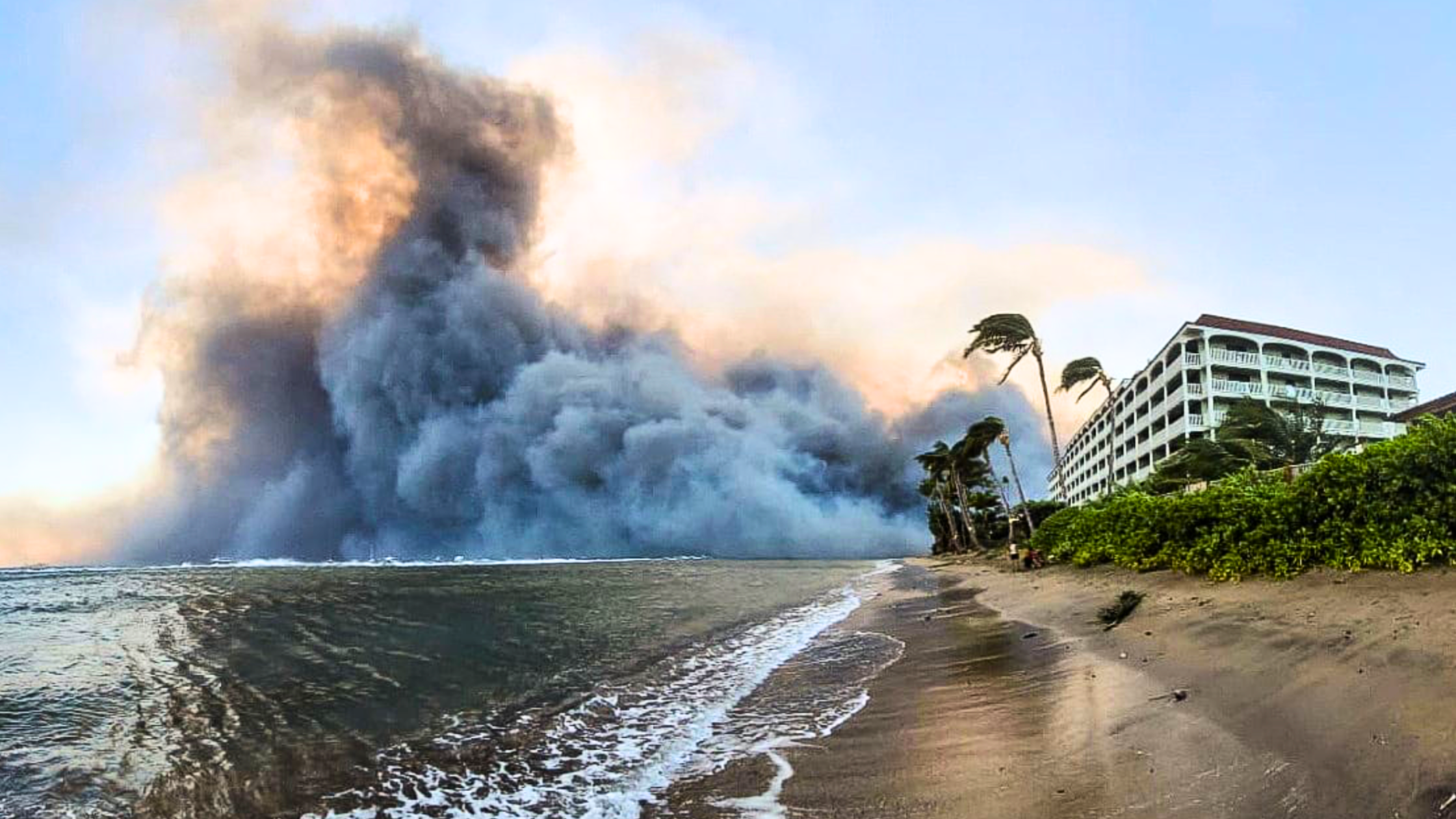Women in Maui Two Years After the Fire
By Erika Pietrzak, July 11 , 2025
Two years after the Lahaina fires, women in Maui face ongoing struggles with housing, violence, and inequality. The disaster exposed deep systemic issues, especially for caregivers and marginalized communities.
Source: NPR
In 2023, Maui was devastated by the Lahaina fires, which killed over 100 people and destroyed three thousand buildings. Insured property losses from the fires amounted to over three billion dollars. In the same month, there were as many wildfires as in the fifty year period between 1953 and 2003. In Hawaii, burned areas have increased five fold since the 1980s. Today, Maui residents still feel the impact of these horrific fires, and recent reports are showing the true impact.
Hawaii experiences climate change uniquely, most notably with sea level rise and hurricanes. In recent years, the effects of climate change on Hawaii have grown to include increasingly common and destructive wildfires. Wildfires, in combination with intense winds, spread the fires rapidly. These wildfires destroy homes and livelihoods, force displacement, and fuel significant cultural and societal unrest that harm Hawaii long after the fires have burned out.
The destruction of homes from ever-increasing wildfires has led to an increase in climate gentrification– Natives are not able to afford the new prices as outsiders frequently outbid them. Many residents have been sounding the alarm on predatory housing practices for years because of “the very high land values and the intense level of trauma and the people who are unscrupulous who will come in to try to take advantage of that.” However, these demands from residents were largely ignored as the government opened Maui up to tourists just two months after the wildfires, despite widespread opposition and a lack of supportive infrastructure.
Hawaii Governor Josh Green promised a draft of “a moratorium on the sale of damaged properties in Lahaina, to protect local landowners from being ‘victimized’ by opportunistic buyers as Maui rebuilds.” Still, impoverished locals may not be able to rebuild as Hawaii is the most expensive state to rent or own a home in. Unfortunately, these individuals will likely be forced to sell their land and buy smaller plots, or move out of their homeland altogether.
Pre-existing gender inequalities were exposed and exacerbated by the post-disaster response. In May 2025, The Guardian reported that one in six surviving women from the wildfires who were surveyed felt forced to engage in “survival sex” to gain basic necessities like food, clothing, and water. This particularly affected non-English speakers and immigrant women. In the first two months after the wildfires, calls to Maui’s main domestic violence service more than doubled.
The wildfires, according to some locals, led to a lack of control for all citizens, which resulted in men using sexual violence at higher rates. Some individuals reported sleeping in their cars with their children and engaging in “survival sex” for a place to stay. Some also reported feeling stuck in domestic violence situations, as alternative safe housing options no longer existed.
One expert said, “fires spark the harmful side of masculinity that other environmental disasters just don’t do.” This is demonstrated in a report from Equality in Flames that found that sex trafficking and commercial exploitation increased in Maui after the fires. The report also found increased levels of substance abuse disorders. It claims that FEMA and the Red Cross failed to adequately adapt to local conditions and rather took a one-size-fits-all approach that lacked the necessary context to prevent these worsening gender disparities.
Caregiving duties often placed on women were also exacerbated by the wildfires. One in four women interviewed stated that their caregiver duties made it harder for them to return to work. Many men found work in rebuilding and distributing resources while the women were left behind to care for children. This stress has contributed to a mental health crisis in Maui amongst women, revealing deep and lasting scars long after the fires.
Change The Chamber is a nonpartisan coalition of young adults, 100+ student groups across the country, environmental justice and frontline community groups, and other allied organizations.
